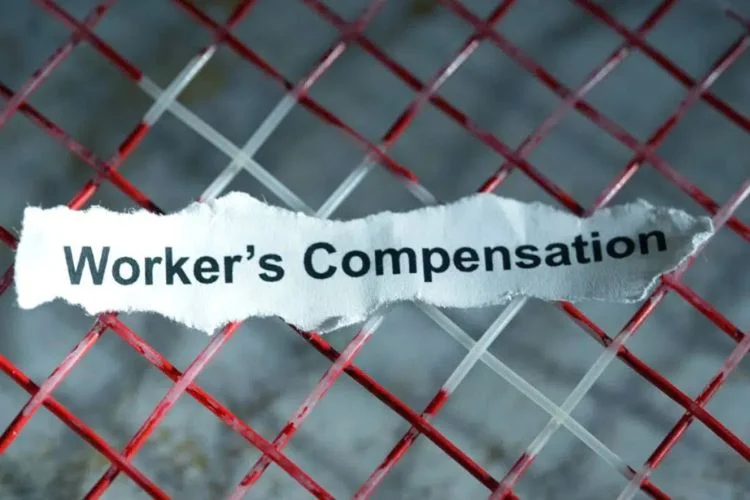Originating from the principle stipulated in Article 3 of the 2015 Civil Code: “The establishment, implementation, and termination of civil rights and obligations must not infringe upon civil interests, national, ethnic, public interests, rights and legitimate interests of others” (clause 4 ). Therefore, any act that causes damage to subjects protected by law is not recognized by law.
However, to encourage individuals to protect themselves and proactively prevent illegal acts that harm the legitimate rights and interests of others, the law considers it necessary to fight back against acts that infringe upon the rights and interests of others. The above mentioned objects are to a certain extent legitimate defense. In theory as well as practice, the institution of legitimate defense is mentioned mainly in criminal law. Legitimate defense in civil law is acquired on the basis of theory and practice in criminal law.
According to the provisions of Article 2 , 2 of the 2015 Penal Code :
1. Legitimate defense is the act of a person who, in order to protect his or her legitimate rights or interests, those of others or the interests of the State, an agency or organization, fights back in a necessary way against the person in charge. acts of infringing on the above interests.
Legitimate self-defense is not a crime.
2. Exceeding the limits of legitimate defense is an act of resistance that is clearly excessively necessary and inconsistent with the nature and level of danger to society of the invasive act.
People whose actions exceed the limits of legitimate defense shall be held criminally responsible according to the provisions of this Code .
If a person acts to fight back against another person’s harmful act and this act of fighting back is considered a legitimate defense, then that act of fighting back is not considered an illegal act, therefore the person Committing acts of resistance does not require compensation for damages. Therefore, Article 594 of the 2015 Civil Code stipulates:
The person who causes damage in the case of legitimate defense does not have to compensate the person who suffered damage.
If based on the conditions that give rise to liability for damages, the act of causing damage due to legitimate defense is not considered an illegal act and therefore the person who commits this act is not considered a criminal. at fault. However, to determine whether an act of causing damage is considered a legitimate defense, it is necessary to pay attention to:
First : There is an illegal act that infringes on the interests of the State , public interests , legitimate rights and interests of others or infringes on the interests of the legitimate defender himself.
Second : Illegal acts of others are causing damage or have the risk of causing damage to the subject of abuse . If damage has already occurred and the damaged person acts to fight back and cause damage in return, it cannot be considered a legitimate defense.
Third : Legitimate defense must cause damage to the person committing the act of abuse (first of all, the life and health; in certain cases, it may be the property of the person committing the act of infringement) . ). If causing damage to a person who has not committed an act of abuse, it is not considered legitimate defense but can be considered causing damage due to the requirements of an urgent situation if certain conditions are met.
Fourth : The act of causing damage in the case of legitimate defense must be necessary and proportionate to the act of harm. If it is not necessary or disproportionate, the person causing the damage must still compensate for the damage.
Thus, when there is an illegal act that causes damage to interests protected by law, the legitimate defender must consider and calculate to be able to legitimately defend. Because legitimate defense is not considered illegal and legitimate defenders are not considered at fault, civil law stipulates that legitimate defenders do not have to compensate for damages.

However, if a legitimate defender causes damage and that damage is the result of an act that “exceeds” the legitimate defense limit, this person must compensate for the damage. Paragraph 2 , Article 594 of the 2015 Civil Code stipulates : ” A person who causes damage by exceeding the limit of legitimate defense must pay compensation to the person who suffered the damage. “
The act of exceeding the limit of legitimate defense here is understood as when someone else causes damage, the legitimate defender has acted to cause damage in return but there is an error in assessing the extent of the harm. The attack, the circumstances of the attack and the act of resistance, thus exceeding the necessary limit, caused damage to the person who committed the original act of causing damage. Therefore, their actions exceeded the limits of legitimate defense. Exceeding that limit is considered illegal, so they must pay damages.
How is compensation for damages due to acts exceeding the limits of legitimate defense determined? There are two different understandings around this issue:
– First understanding: Exceeding the limit of legitimate defense is considered a mitigating circumstance in criminal liability but cannot be the basis for reducing the level of compensation in civil liability, because it is the illegal behavior.
– Second understanding: If damage is caused by exceeding the limit of legitimate defense, compensation must be paid to the person who suffered the damage on the principle that the amount of damage must be compensated. However, in this case, both the person causing the damage and the person suffering the damage are at fault, so it is necessary to determine mixed liability for both parties.”
Determining liability for compensation in this case requires certain attention. Normally, liability for compensation arises when the following conditions are fully satisfied: Damage occurs; acts that cause damage are considered illegal; there is a cause and effect relationship between the illegal act and the damage caused; It is the fault of the person who caused the damage. In addition, in principle, a person is only responsible for his or her actions and the consequences that result from them. According to the law, if damage is caused in the case of legitimate defense, the act is not considered illegal, so the person performing this act does not have to compensate. If an act exceeds the limit of legitimate defense, this act is considered to have committed an illegal act, so the person who commits the act beyond the limit of legitimate defense must be responsible for compensation. usually all damages caused by that act.
Originating from the principle that a person is only responsible for his or her illegal actions and the consequences that result, therefore, when illegal actions cause damage, they must compensate for all damages. happen. In cases where the person causing damage has performed a legitimate defense, but then, due to a mistaken imagination, continues to perform an unnecessary defensive act. In this case, the act of causing damage is illegal, so you must compensate for all damages caused by that act.




